How a Cross-Border Financial Advisor Can Help Expatriates (and How to Choose the Right One)
By Chad Creveling, CFA, & Peggy Creveling, CFA
While working, your assistant forwards a call from someone who says he’s returning your call. Once connected, you realize you’ve never talked to the person, and you wonder how he got your name and contact details. Attempting to arrange a free consultation, the mystery caller claims he can help you improve your financial situation.
If you’re an expatriate living and working overseas, you may have faced the above situation. The fact is, most of us would like answers to a variety of financial questions such as: When will I have enough to retire? How and where should I invest? What currencies should I hold and where? Should I purchase property? What tax shelters are appropriate for my situation? How much insurance do I really need and what kind? It’s reasonable to want to consult with a professional, but you may not trust the cold-caller who’s telling you one of your friends gave him your number.
The good news is that the process of cross-border financial planning can be extremely valuable. Solid planning starts with assessing your current financial situation, defining where you want to be, and drawing up a road map showing how to get there. True wealth is created through the compounding of sound financial and investment decisions over a lifetime, and a professional financial planner can provide the analysis and recommendations you need to help you make these decisions.
On the flip side, wealth isn’t gained by only occasionally focusing on your finances, nor from depending on the cursory advice that comes with the sale of an offshore financial product or investment scheme. Yet that’s often what’s offered by the type of offshore financial advisor who may be cold-calling you at the office.
Choosing an offshore financial advisor carefully is as important as choosing a doctor or lawyer. You’ll want to find someone who is competent, trustworthy, and who works in your best interest. To help you find the financial advisor who may be right for you (as well as to protect you from those who could do harm) we’ve put together some characteristics to look for in choosing a cross-border financial planner:
1) Transparency and Full Disclosure—Trust can only be built on getting straight, clear answers to your questions. Research your advisor, don’t be afraid to ask questions and get details in writing. If you find the answers confusing, it may be that the advisor is trying to cloud the issue—not a good sign. Have the planner provide you with a written agreement that explains the services to be provided and the fee structure. “Free” advice can become quite expensive once all hidden fees are accounted for.
2) Relevant Experience—Find out the planners’ past work experience. You want to know if your potential counselor has just set up shop after leaving an unrelated field. Does the advisor have experience working with clients in situations like yours? Or does the advisor offer a “one-size fits all” solution?
3) Services Offered—Check to see which services the financial planner really offers and how the services are provided. In some cases, long lists of advertised services are met with the sale of a few financial products. This may not be appropriate to your situation. If you’re an American, make sure the advisor really understands and plans for how you’ll be taxed over the long run—the IRS has punitive rules for offshore investments and insurance products.
4) Professional Qualifications—Do some research on your potential advisor’s qualification(s). Don’t be satisfied until you understand what the qualification is and what’s involved in obtaining it. Unfortunately, there’s an alphabet soup of financial “qualifications” out there of varying significance. A qualification involving a one-hour multiple-choice exam is not the same as a globally recognized one that requires years of study and experience and several stringent examinations.
Finally, contact the granting organization to make sure your planner has the qualification in question and that his status is current. It’s not a good sign if you cannot locate or contact the granting organization, or if it has never heard of your “advisor.”
5) Licensing or Registration—A regulating body (as opposed to a trade organization) has legal authority to oversee firms within its jurisdiction. Regulators protect consumers by establishing rules guarding individuals’ privacy, requiring openness, and providing a channel for consumer complaints.
To protect consumers, most countries require that advisors operating in their jurisdiction be registered or licensed. For example, in Thailand the Thai Securities and Exchange Act requires that individuals who give investment advice be registered with the country’s Securities and Exchange Commission, and that the advisory firm holds a license from the Ministry of Finance. Contact your local regulator to be sure your advisor is regulated. Be sure that it’s the advisor you’re working with who is regulated, as opposed to an outside company within the same group, or a third-party supplier of financial products.
Remember that with the exception of the U.S. SEC, most outside regulators do not regulate firms or individuals giving investment advice outside their borders. So if you’re misled, receive inappropriate advice, or are overcharged by individuals or firms in the country where you live, an offshore regulator will not be able to help you.
6) Avoid Being Locked Into a Long-Term Arrangement or Buying a Scheme With Surrender Charges—There’s rarely a benefit to having your money tied up for long periods or to being forced to make contributions or face penalties. Be sure you will have control of your funds, and that you can easily access your money if needed.
7) How Is the Advisor Paid?—Find out how an advisor is compensated. Does he or she receive commissions on products sold to clients? If so, the advisor only is rewarded when he sells you a product, and in the offshore world, this is typically an expensive insurance-wrapped investment scheme. A product salesperson may have very different objectives than an advisor who only gets paid for providing advice. If the planner won’t provide you complete disclosure about his or her compensation, that’s an answer in itself.
8) Hidden Fees—While front- or back-end commissions are usually disclosed, additional fees and commissions often are not. In some cases, investments can have several layers of fees, with the basic management or advisory fee that is usually disclosed being only part of the total amount involved.
9) Professional Affiliations—Find out which professional organizations the financial planner belongs to and how credible they are. Financial issues in today’s world can be complicated, and this is especially true for expatriates. Professional planners typically affiliate with networks of specialists in a variety of jurisdictions that provide additional legal and tax information. Be wary of firms that say they have all the expertise in-house, or that try to pass off sales or distribution offices as a professional network.
This article is a revised and updated version of one that had appeared previously on www.crevelingandcreveling.com
About Creveling & Creveling Private Wealth Advisory
Creveling & Creveling is a private wealth advisory firm specializing in helping expatriates living in Thailand and throughout Southeast Asia build and preserve their wealth. The firm is a Registered Investment Adviser with the U.S. SEC and is licensed and regulated by the Thai SEC. Through a unique, integrated consulting approach, Creveling & Creveling is dedicated to helping clients cut through the financial intricacies of expat life, make better decisions with their money, and take the steps necessary to provide a more secure future.
Copyright © 2022 Creveling & Creveling Private Wealth Advisory, All rights reserved. The articles and writings are not recommendations or solicitations, and guest articles express the opinion of the author; which may or may not reflect the views of Creveling & Creveling.

